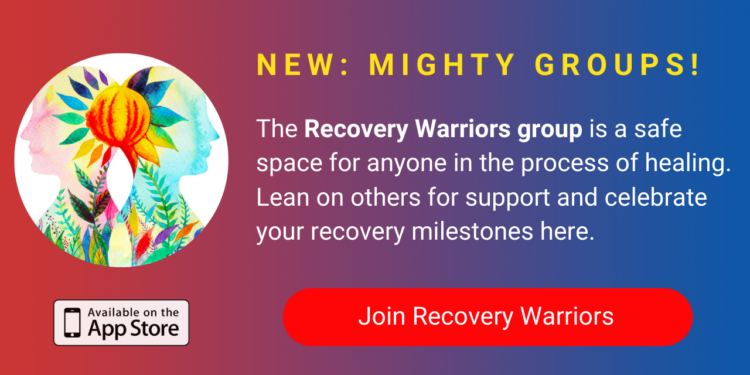It’s July, and while the country enters different stages of reopening, we’re still seeing a spike in COVID-19 cases in some parts of the country. I’ve found myself interacting with, evaluating and using my relapse prevention plan throughout all these different stages of uncertainty: from shelter-in-place, to re-openings, to everything in between.
The anxiety mixed with many other swirling thoughts and emotions is real. I remember the end of April 2020 when it came to a head for me as I broke down crying in immense anxiety, fear, anger, sadness and frustration the morning after texting the Crisis Text Line in an effort to not give in to my past addiction and suicidal ideation in the middle of the night, trying not to wake up my wife just one month into being newly married and a month and a half into the shelter in place order. Something had to change. My mental and emotional health could no longer take the back burner. I was open with my wife, connected to a therapist, explored how to incorporate more self-care during COVID-19, and started a new COVID-19 relapse prevention plan.
Creating this plan created a need and opportunity to look at my past. I needed to look at where my struggles have been, what the triggers were, where I had success and factors that led to relapse. This was needed because it provided me essential information helping me evaluate where I am today and how to grow my relapse prevention plan, especially because I found that stress and anxiety are huge triggers for me. To say COVID-19 definitely creates stress and anxiety for me is an understatement. This time also provided me an opportunity to reflect on how far I have come and to gain confidence that I have the ability to create a new relapse prevention place and make self-care a priority.
When reflecting, I remembered when at 18 years old I had no idea what a relapse prevention plan was, nor did I know I was on a roller coaster of triggers and coping. I was living with a rare progressive neuromuscular disease while struggling with depression, anxiety, complex PTSD from trauma, suicidal ideation and addiction to self-injury, an eating disorder, alcohol and pills. Even though I was struggling in a way that wasn’t new to me, I still didn’t have the language or understanding of what was happening with me. I quickly entered the adult mental health system cycling in and out of inpatient programs, intensive outpatient and day programs, doctors appointments, rearranging 34 medications in eight years trying to find the right combination, many rounds of therapy, support groups and more relapse prevention plans than I can count on my hands.
At 35 years old I am no longer a part of that system in the same way, but my overall well-being, especially my mental health and wellness, is important to me that a lot of energy and intention goes into it. It’s been over 15 years since that journey began. I was proud of myself. On some days I still am. In the midst of all that time, I still achieved so much. I had managed to graduate with my BS in Psychology and my MS in Multidisciplinary Human Services; I had spoken to so many groups on mental health and recovery; I had relapsed many times. I was living independently and actively involved in different communities; was four years successfully in my recovery from engaging in self-injury, my eating disorder, alcohol and pills; survived a toxic marriage; I had worked on my trauma and healing; found my soulmate and am in a healthy second marriage looking forward to our life together, and had a large box of tools with an immense understanding of myself and my struggles. I felt equipped as I continued on my holistic health journey and counseled others who were struggling with the realities and possibilities of life in recovery. I felt strong and stable in my tools, my daily intentions in self-care, and my ability to notice signs early to call for pulling out my relapse prevention plan for a little extra support and accountability. In all of this, none of it included or was prepared for the mental, emotional, social and physical impact of COVID-19.
COVID-19 has and continues to impact millions of people. It has changed the way we knew life to be as well. As a person with an autoimmune and neurodegenerative disease, and as someone with family and friends who have conditions that put them at higher risk, I was so focused on the physical impact. However, because I felt like I had been through everything with my mental and emotional health, I didn’t think it was an area of my life I had to worry about. Even though life as we knew it was about to change for all of us and I knew how that impacts me in relation to my anxiety and autism. In all areas, I honestly didn’t think the impact of COVID-19 would last this long or be this extensive with grave impact. I was wrong.
As time went on in the beginning phases of the shelter in place, I felt myself being challenged to keep everything together in a way I had never been before. Recovery and relapsing seemed to be fighting over the driver’s seat more and more as each week passed. I became afraid and stressed about losing all the previous work I had done, the successes I had achieved, the stability and health I had gained with the life I was enjoying starting to build after all the healing and recovery work. Now as we are entering the fifth month, I find these impacts, thoughts and emotions are still present. My relapse prevention plan has taken a more permanent seat in my day-to-day life, reminding me of these 10 things.
- It’s OK to not be OK. Sometimes just being able to acknowledge to myself or be able to reach out to someone and say that I am struggling makes all the difference. It helps me feel I am not alone and I am supported making it to the next moment.
- Seeking professional and/or peer support does not make me weak. This has always played a part for me across my journey and has been an internal struggle. But especially during this time I have been thankful for the virtual recovery meetings, therapy access, crisis text lines and support groups to connect with support and support others at the same time.
- Discovering more resources to add to my toolbox is always helpful, and the size of my toolbox is limitless.
- Be kind and gentle with myself and others.
- Sometimes the words are just not there. That’s OK. Ask yourself, are there other ways you can express or get out what is happening for you? This could mean baking, creating or playing a game, going for a walk, drawing/painting/writing a poem, singing/writing/listening to music, etc…
- Be open and non-judgmental about what I and others are experiencing.
- Self-care is important and it’s OK to make it a priority. No, it’s not just OK, it’s a necessity.
- Recovery is not linear. My relapse prevention plan is not linear. They are in action, struggling, changing, growing, evolving and more.
- No matter how much I am struggling, it doesn’t automatically mean I have relapsed or that relapse is inevitable. I am capable of gathering data about how I am really doing is important. I can get through this. I will come out stronger than ever on the other side. I got this. We got this.
- It can be hard to hold onto hope, but the hope is still holding onto me one moment at a time.
This is me and my experience. Share yours. How are you doing coping during this time? What’s been challenging? What’s been helpful?
Photo by Warren Wong on Unsplash


